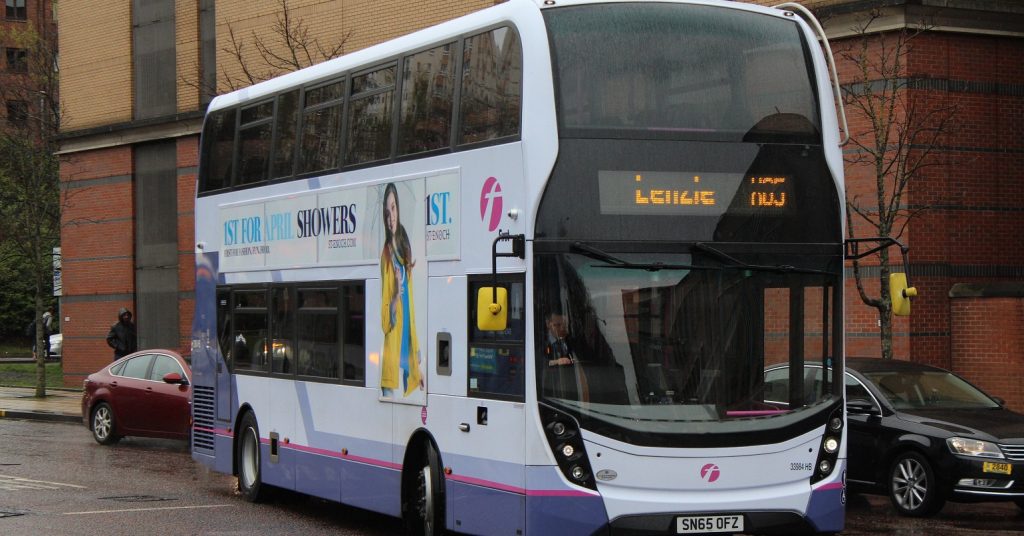New campaign calls for public control of buses in Strathclyde

Trade unions have joined forces with environmental and health charities to launch a campaign calling for buses in Strathclyde to be taken into public control. The campaign – Better Buses for Strathclyde – is calling on Strathclyde Partnership for Transport (SPT) to regulate the buses in the area. Regulating the buses would mean that the both routes and fares would be set by SPT.
The campaign has been launched just days after Andy Burnham – the Mayor of Greater Manchester – finally introduced a regulated bus network in his city-region.
The Strathclyde region covers 12 councils and has a population of 2.2 million. It has the largest number of bus users in Scotland, yet passenger numbers continue to fall as commercial operators cut routes and increase fares. A single on First Glasgow is now £2.85, compared to £2.00 on Edinburgh’s publicly-owned Lothian Buses.
Among the groups backing the campaign are the STUC, Friends of the Earth Scotland, Get Glasgow Moving, Asthma + Lung UK Scotland, APRS, We Own It, Glasgow City Parents Group, Parents for Future Scotland and the Scottish Pensioners Forum.
Ellie Harrison, committee member at Get Glasgow Moving, said: “Buses across Strathclyde are unreliable and too expensive – the private companies running the vital services continue to cut routes and hike up fares despite the vast public subsidies they receive. It’s a disaster for our economy, society and our environment.
“By taking buses back into public control, SPT can cut fares and deliver one simple, affordable ticket across all transport modes – like Greater Manchester is doing right now.”
Gracie Bradley, director of Friends of the Earth Scotland, added: “Transport is Scotland’s biggest source of climate emissions, so we need an affordable, accessible, high-quality public transport network to make it possible for people to get around without cars. As well as being essential to take action on the climate crisis, this will bring other benefits to society like reducing inequality and improving health and wellbeing.
“We need to start thinking of public transport as an essential service, like education or health. Bringing buses back into public control is the first step in making sure it’s available and affordable for everyone.”
PS. We hope you enjoyed this article. Bright Green has got big plans for the future to publish many more articles like this. You can help make that happen. Please donate to Bright Green now donate to Bright Green now.
Image credit: EDDIE – Creative Commons



Leave a Reply